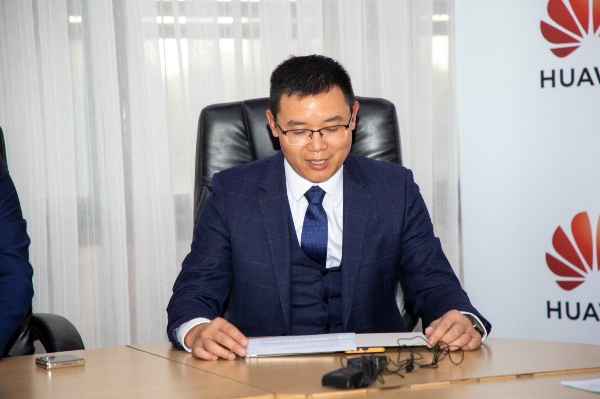Huawei Kenya is ramping up learners’ access to the Internet by extending the connectivity to children with special needs. Initially, six special needs schools will be linked to the national fibre optic cable in the second phase of the Digischool program, which targets 16 primary and secondary schools.
Huawei Kenya Deputy CEO Steven Zhang said Digischool has been designed to enhance the learning experience for students across schools in Kenya and improve the overall administration of these institutions.
“Huawei has spent 25 years helping build networks, connecting mobile devices, homes and government offices nationwide. It is important for schools not to be left behind to prepare learners for their future careers in a digital economy by being connected and developing relevant digital skills,”
Said Zhang.
Ogilvy Africa appoints Cathy Gathu as managing partner in Kenya
After completing the Digischool program’s first phase, in which 13 schools were connected to the National Fiber Optic Cable, we will prioritize and expand school connectivity to enhance education quality, accessibility, and equity. They will also extend training in digital skills and the responsible use of the Internet for teachers, school administrators, learners, and, where applicable, parents.
In addition, they intend to develop guidelines within schools to regulate the use of the Internet and tech gadgets and continue to connect schools via National Optic Fiber Backbone Infrastructure (NOFBI), as it is both affordable and reliable.
The partners announced they will collaborate to rapidly provide all schools with sustainable and affordable Internet connectivity to minimise initial connectivity costs and recurring expenditures. Establish community Internet hubs to facilitate online access for the community surrounding schools.
“We established from the first phase that schools were able to achieve at least Kshs 120,000 in cost savings per term on internet bundles by being connected to the national fibre optic cable,” Explained Zhang.
Echoing his remarks, Principal Secretary for Basic Education, Dr Belio Kipsang, said that:
“The government seeks to expand internet connectivity to all schools in the country in line with the Digital Masterplan and the Digital Superhighway Pillar of the Bottom-Up Economic Transformation Agenda Plan.”
He further added:
“Internet enhances access to, and equality of, education for learners in rural areas, particularly girls and those with disabilities. I want to thank Huawei through their TECH4ALL initiative and UNESCO for collaborating with the government to provide sustainable internet connectivity to its fiber-optic network.”
WATCH: Tanzanian influencer trolled for washing Range Rover with Hennesy
Digischool’s initial phase revealed that the Internet boosts education quality, the education environment, and the attitudes of learners and teachers. It also showed that teachers and learners use a variety of online platforms and tools, particularly YouTube and interactive quizzes.
The Digischool program has also created many unplanned benefits, such as inter-school support and student access to international competitions. In addition, school administrators significantly benefit from online access, especially from communicating with parents and school Internet parents. The local communities can also use the Internet access points in these schools.








